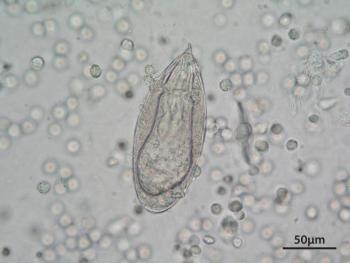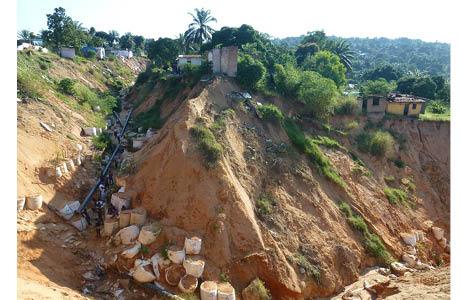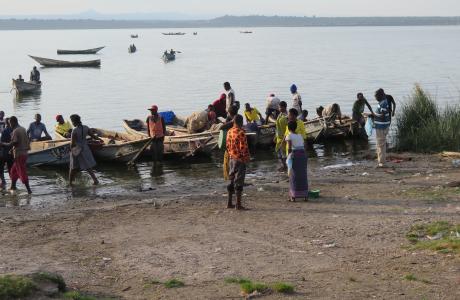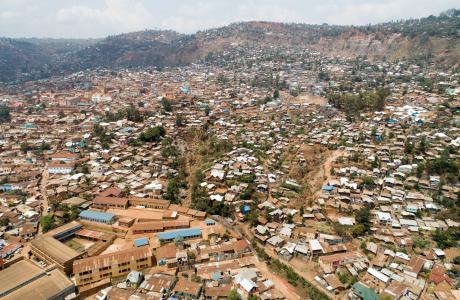Tropical parasites make swimming riskier in southern Europe

New research from KU Leuven and AfricaMuseum shows that climate change allows disease-carrying freshwater snails to survive in several southern European countries, driving up the risk of catching schistosomiasis, an infectious disease caused by a parasitic flatworm. Scientists want holidaymakers to be aware of the risk before taking a refreshing dip in the river or lake.
Schistosomiasis is a tropical disease caused by a parasitic flatworm carried by freshwater snails (particularly Bulinus truncatus). It is second only to malaria as the most widespread infectious disease, causing more than 200 million infections worldwide. People who swim or bathe in contaminated freshwater bodies such as rivers, lakes or ponds can become infected. Typical symptoms of the disease include rashes, anemia, acute stomach pain, or blood in urine or stool, and, if left untreated, sterility, bladder cancer, liver fibrosis, or growth or developmental delays in young children.
Because of climate change, more and more infectious diseases are reaching European shores. Schistosomiasis has been present in Corsica since 2013 and more recently in Spain, in the province of Almeria. It is still uncertain if the disease can spread further.
A common thread: snails
The parasitic flatworms that cause schistosomiasis need freshwater snails as hosts. For this reason, biologists from KU Leuven, AfricaMuseum and the University of Copenhagen studied the minimum and maximum temperature ranges at which the snails can survive. ‘We discovered that these snails can adapt easily to new conditions, and thus colonise new regions such as Europe,’ said KU Leuven researcher Tim Maes.
After combining the data with 21st century European climate models, it appears that the future climate in large parts of Spain, Portugal, France, Italy and Greece would be favourable to the survival of these freshwater snail hosts. ‘Previous research has already shown that the parasite itself can withstand temperate climates, but a full infection cycle requires the presence of the parasite, the snail, and the human. Travellers who carry the parasite from Africa to Europe are not currently a problem, but climate change makes it possible for all three éléments to thrive in a European climate, and thus further the spread of infection,’ said Tine Huyse of KU Leuven and AfricaMuseum.
A heads-up for travellers and physicians alike
‘At the moment, we do not believe that the snails can survive in Belgium, but travellers should be on the lookout for symptoms when they return home,’ said Maes. Huyse added ‘Doctors may not make the connection with schistosomiasis if tourists have not travelled outside Europe and leave the condition untreated, with all the consequences that this entails.’
The article ‘Climate change could fuel urinary schistosomiasis transmission in Africa and Europe’ (DOI 10.1111/gcb.17434) was published in Global Change Biology.
This research is a collaboration between KU Leuven, the University of Copenhagen, and AfricaMuseum. It was funded by the Fonds Wetenschappelijk Onderzoek and the EU Horizon 2020 programme.


